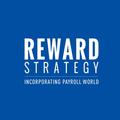Steady inflation, shifting pressures
 Reward Strategy
Reward StrategyInflation holds steady at 3.8%: What it means for Reward, Payroll and HR

UK inflation held steady at 3.8% in September, marking the third consecutive month at this level. While that’s slightly below the Bank of England’s 4% forecast, the data confirms that price pressures remain persistent and the implications for employers, payroll teams and HR are significant as the Chancellor prepares for next month’s Autumn Statement.
Persistent inflation continues to weigh on real wages, benefits budgets and employee sentiment, even as some economic indicators hint at gradual stabilisation. Many reward leaders are watching closely to see how fiscal policy, wage growth and taxation align in the coming months.
Andrew Phillips, Managing Director at V12 Retail Finance Limited, part of the Secure Trust Bank Group, said that while inflation remains high, there are glimmers of optimism: “Inflation in the UK remains persistent, coming in at 3.8% in September, marking the third consecutive month at this level. On a slightly more positive note, the Bank of England had projected headline inflation to peak at 4% before easing.
“For consumers, there are encouraging signs: annual food price inflation has eased slightly to 4.5%, down from 5.1% in August. There’s also increasing expectation that the Bank of England may act sooner than expected, with a potential quarter-point rate cut now anticipated in February 2026 rather than March.”
For payroll professionals, this stabilisation means wage pressures could begin to ease, but reward teams will still need to balance retention incentives against affordability. With consumer confidence still fragile, many employers will need to consider targeted financial wellbeing support or benefit flexibility to help staff manage ongoing cost-of-living pressures.
Mike Randall, CEO at Simply Asset Finance, said the data shows business resilience but warns against complacency: “Stable inflation and steady GDP growth suggest the economy is holding its ground, with businesses continuing to show remarkable resilience in the face of higher costs.
“It’s important now that the Government doesn’t take this resilience for granted. The upcoming Budget is the moment to deliver — with a clear plan that gives SMEs the confidence to invest and grow.”
For HR and payroll teams in small and medium enterprises, this continued uncertainty reinforces the need for cost management discipline. Many SMEs are already absorbing higher employer National Insurance contributions and are being cautious about pay awards, creating ongoing challenges for recruitment and retention in tight labour markets.
With inflation now locked in as one of the metrics driving next year’s state pension increase, Maike Currie, VP Personal Finance at PensionBee, explained: “September’s inflation figure is one of the determinants of next year’s state pension increase under the government’s triple lock. With earnings growth at 4.8% still outpacing price rises, the full new State Pension is set to rise by £11.05 to £241.30 per week from April.”
This will lift the full new State Pension to £12,548 per year. Only £22 below the personal allowance threshold.
“Many retired pensioners on the full new State Pension could find themselves paying income tax on it the following year,” Currie added.
For employers, this outcome may raise payroll complexity and communications challenges. HR leaders should anticipate questions from employees approaching retirement and ensure clear guidance on how pension increases intersect with tax thresholds.
Currie also noted the longer-term debate this raises for reward strategy and intergenerational fairness, with fiscal sustainability now a key concern for policymakers.
Simon Webb, Managing Director of Capital Markets and Finance at LiveMore, welcomed the steady reading: “The fact that inflation has held steady this month will be welcome news for households, suggesting that the Bank of England’s cautious approach is paying off. Stability is exactly what the markets were hoping for.”
Webb added that for later-life lending and mortgage markets, stability offers borrowers a chance to reassess their options.
For employers, particularly those with diverse age demographics, this reinforces the importance of financial education programmes helping employees of all ages understand the impact of inflation, borrowing costs, and savings returns on their personal finances.
Matt Harrison, Customer Success Director at Finova Broker, said the data was a relief but urged caution: “It might be sticky, but inflation holding steady — and not hitting the Bank of England’s 4% forecast — is a pleasant surprise.
“Rachel Reeves has warned that her Autumn Budget has required some ‘tough decisions’, but it’s crucial that offsetting measures are introduced to avoid further inflationary damage.”
For HR and payroll teams, “tough decisions” in fiscal policy could mean further scrutiny of employer costs, from pension contributions to benefits taxation. Reward professionals should prepare for budget realignments following the Chancellor’s Statement and consider how to sustain engagement without significant pay uplifts.
Neil Rudge, Chief Banking Officer, Commercial at Shawbrook, described the environment as complex: “The stubborn rate of inflation combined with the recent uptick in unemployment presents a challenging backdrop ahead of the Autumn Budget.
“Should inflation begin to ease through 2025, interest rate cuts are likely to follow, improving conditions for businesses.”
For payroll and reward professionals, this transitional period calls for scenario planning. While interest rate cuts may eventually ease corporate borrowing and raise confidence, employers should remain mindful of salary benchmarking, retention risk, and cost-of-living support as employees continue to feel financial strain.
While September’s inflation data shows early signs of stability, the cost-of-living crisis is far from over. For HR, payroll, and reward teams, the focus now turns to balancing fairness, affordability, and financial wellbeing ahead of the Autumn Statement.
Employers will need to remain agile in pay planning, transparent in communications, and proactive in supporting employees through the continued squeeze on real incomes, ensuring that reward strategies evolve alongside the economic landscape.
